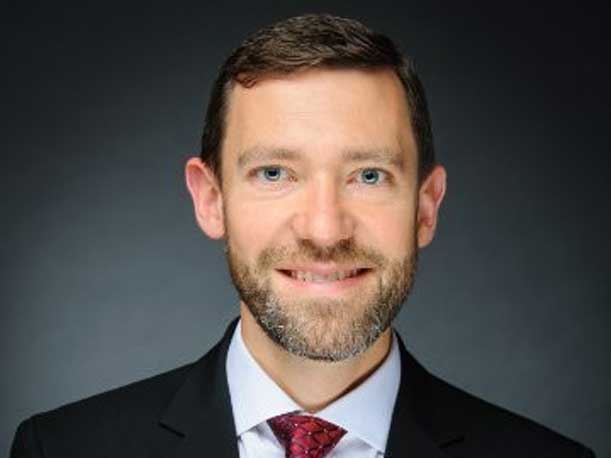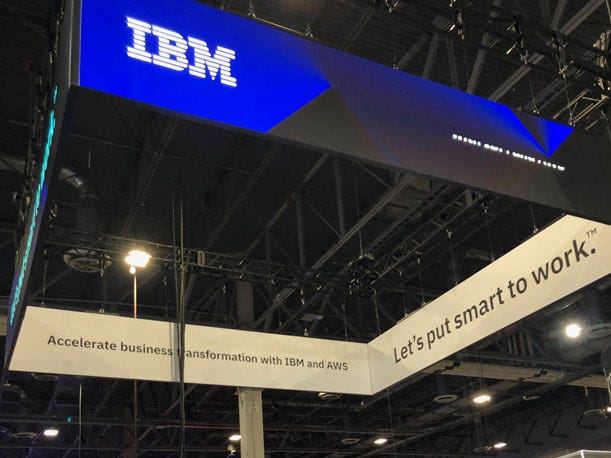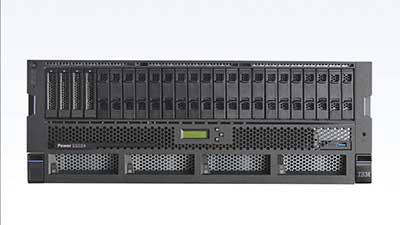Mainline Information Systems CEO: ‘The Industry Has Helped Us Get In The Direction Of Recurring Revenue’
‘We certainly have our own services that we provide customers, including managed services and staffing services that fit into a recurring revenue model. And many of our vendors, our OEMs and ISVs, are moving more towards that annuity model. So we’re seeing far more interaction with our customers on an ongoing, monthly or more often, annual recurring revenue-type sales,’ says Mainline Information Systems CEO Jeff Dobbelaere.

Shifting Focus For The Future
Mainline Information Systems is a large national solution provider in the midst of a swing from its traditional data center infrastructure focus to embracing new technologies and processes that businesses everywhere are hoping will modernize their operations.
And yet Mainline is not rushing headlong into the latest buzzwords, preferring to take a measured approach that also respects the need by businesses to maintain and grow their legacy systems, said Jeff Dobbelaere, CEO of the Tallahassee, Fla.-based solution provider.
Dobbelaere, who in May 2022 took over as Mainland’s interim CEO after the surprise departure of former CEO John McCarthy, and who in January became permanent CEO, told CRN that his company stands with its feet firmly planted in both legacy and future-facing IT infrastructure.
[Related: Kyndryl Exec: We Are ‘Speeding Ahead’ On Mainframe Modernization]
“We have not necessarily made a concerted effort to migrate away from the legacy data center-type of selling, such as legacy data center products and capital-intensive purchases for our customer base,” he said. “But the industry has necessarily helped us get in the direction of recurring revenue. We certainly have our own services that we provide customers, including managed services and staffing services that fit into a recurring revenue model. … So we’re seeing far more interaction with our customers on an ongoing, monthly or more often, annual recurring revenue-type sales.”
This is not a shift Mainline is doing in a hurry. The solution provider has a strong data center infrastructure practice and remains a leading provider of services around the IBM mainframe and Power Systems lines.
But Mainline continues to move in the direction of helping modernize customers’ infrastructures. For instance, the company in January acquired another solution provider, Axcelinno, for its cloud, IT automation and DevSecOps (development, security and operations) capabilities.
“They bring to us one degree of separation from what Mainline does today, and their skills have been heavily in demand as a partner of ours,” Dobbelaere said. “So it was a very natural fit to bring them into the organization. And what we’re trying to accomplish is raise the level of awareness with our customer base, raise the conversation from IT infrastructure to application infrastructure.”
There’s a lot going on at Mainline. Here is a look at a very large solution provider in transition.

How do you define Mainline?
Mainline is a premier IT product and service company that caters to midsize and enterprise customers in the U.S. Our primary focus is in the data center and helping customers both maintain and secure and optimize their core data assets.
Mainline traditionally was a big IBM partner. Is IBM still the predominant part of your business?
So IBM is still very important to us. And they still are the largest partner that we carry. But over the last 13 years, we’ve done a good job of diversifying the portfolio and being able to expand our footprint within our customer base, not at the expense of IBM, but in addition to what we provide from IBM.
You mentioned a data center services focus. Has Mainline adopted in a meaningful way subscription or recurring revenue services? Or is the focus still more on the more traditional data center-related products and services?
I think the answer is probably both. We have not necessarily made a concerted effort to migrate away from the legacy data center-type of selling, such as legacy data center products and capital-intensive purchases for our customer base. But the industry has necessarily helped us get in the direction of recurring revenue. We certainly have our own services that we provide customers, including managed services and staffing services that fit into a recurring revenue model. And many of our vendors, our OEMs and ISVs, are moving more towards that annuity model. So we’re seeing far more interaction with our customers on an ongoing, monthly or more often, annual recurring revenue-type sales.

Mainline in January acquired Axcelinno for its cloud, IT automation,and DevSecOps capabilities. What is Mainline’s acquisition strategy in general?
When I took over as [interim] CEO about 10 months ago, I told the Mainline personnel that we need to invest in ourselves and our people. We need to invest in our future. We need to be able to define who we are to our customers and to the world. The plan has always been to organize what we do into practice areas, identify the gaps that we have in those practice areas, and then figure out how we’re going to fill them. That could be through hiring. But if a gap is significant enough, I believe that the best way to go for our purposes is to acquire a company that has an established run rate of business, established customer base, established processes and skills.
So that’s exactly what we’ve done with Axcelinno. It was our first acquisition. We identified a gap that we had in the client cloud migration space, in DevOps and DevSecOps, in IT automation. Axcelinno has been a longtime partner of Mainline’s. They’re a great cultural fit. We’ve become very good friends with the owners, Farhan Hussain and Josh Minthorne, over time. We started conversations with them back in the August time frame, I believe, about becoming part of Mainline. Those went very well, and we were able to close that acquisition at the end of January.
They bring to us one degree of separation from what Mainline does today, and their skills have been heavily in demand as a partner of ours. So it was a very natural fit to bring them into the organization. And what we’re trying to accomplish is raise the level of awareness with our customer base, raise the conversation from IT infrastructure to application infrastructure. And what I mean by that is,customers are refactoring their applications into microservices on Kubernetes. Many of them are looking at Red Hat as the answer. Axcelinno was a great Red Hat services company. The acquisition of Red Hat by IBM has strengthened our position with Red Hat, and we’ve seen continuous growth of Red Hat year after year, and it’s an area that we wanted to invest in.
So that is our first acquisition. We certainly have more that we would like to do in and around the similar areas, similar spaces, or if we want to try to expand our geographical footprint.
Prior to that, we acquired a company called RTP Technology. So when I say Axcelinno was the first acquisition, I’ll say the first acquisition with me as CEO.

What are you looking for in future acquisitions?
We look at skill sets that fill the gaps that we have in our existing personnel. But we also may look to expand our geographical footprint. It’s no secret that there’s been a lot of consolidation within the value-added reseller industry. We’ve done a little bit of that, as I mentioned. But we think there’s still more opportunity out there where it makes sense to consolidate. Those may be less strategically planned and more associated with who’s looking to do what at what time.
Talk a little about Mainline’s finances and ownership.
We achieved $1.1 billion in sales last year. The company is profitable.
Mainline is still completely 100 percent owned by our founder, Rick Kearney. He founded the company in 1989. And he was the visionary that started the company and grew it. Today, he serves as the chairman of our board and has turned over most decision-making to the executive team.
I asked because we’re seeing a lot of private equity interest in solution providers. Do you ever get approached by investors looking for an opportunity to acquire a company like Mainline?
Constantly. I talk to bankers, private equity, other strategic acquirers frequently. But we’re very comfortable with where we are. There’s a lot of advantage to be known as privately owned. It allows us to make the investments we want. And we’re very comfortable with the situation we’re in.

Mainline has had a long history with IBM’s mainframe technology. How is the mainframe business?
I would say we’re one of the last [mainframe solution providers]. I don’t know that the population of mainframe providers had really shrunk that much. Perhaps they’ve consolidated some, but IBM has always been pretty metered in how they hand out the ability to sell a mainframe or to work on mainframes. Mainline was one of the early adopters of mainframes through the channel. And we’ve always enjoyed that position. Mainframe sales last year were very strong. One difference in how we perceive the market differently than perhaps we have in the past is I don’t see it as being either/or. It doesn’t have to be legacy systems or modernization. It can be both.
What we see with our customers who were heavily invested in the mainframe, or even the IBM Power Systems, is that they need to be able to integrate those systems into their entire IT strategy. And that’s something we want to absolutely participate in and help them with. So it’s very common for customers to have core data assets in the mainframe that they need to commingle with streams of data from cloud providers or other systems to make important business decisions. And we want to help customers get there.
Is IBM’s mainframe and Power Systems a growing business for Mainline?
I would say it’s more of a steady state business.

What are some of your strategic initiatives for the rest of 2023?
So as previously mentioned, we made our acquisition of Axcelinno in late January. We’re currently undergoing integration of that organization and look forward to scaling it throughout Mainline. That’s going to be a big piece of what we do this year. We will continue to look for other acquisitions that fit in areas where we may need some additional assistance. We see areas such as security and networking as being ever present and of increasing importance. While cloud computing may outpace the growth of compute and storage within the data center, the need for security and networking will only increase as companies move to a hybrid model. So we see those as areas of investment for us.
Anything else we should know about Mainline?
I’ve been here for 20 years. And it’s been just a wonderful organization with which to work. I feel very fortunate for the opportunities I’ve been given. And it’s really all about the people. I mean, it just has the highest-quality people in the industry, bar none. And that’s what has made it such a fun ride for me and has made it a place that I want to be my entire career. I think there’s a lot of people within the organization that have a similar sentiment.